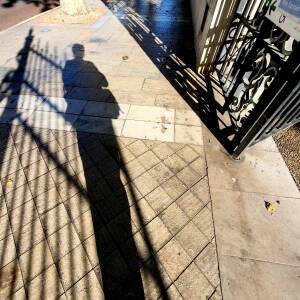Memento mori
On Friday night seven weeks ago I heard sirens on the main road, as I often do. But this time I could hear that at least two, maybe three of the emergency services were out. I did a quick mental check of where my children were. Later, when it was dark, I heard the police helicopter hovering near the bridge over the river.
This evening I cycled over that bridge and saw these tributes to the 15-year-old who drowned that warm evening. His mates were jumping off the bridge and swimming to the bank. In his turn he jumped. But he didn't know how to swim.
By coincidence, when I saw this I was on my way back from the launch of a book written by an ex-colleague. He is a school counsellor and writes very readably about the things that concern young people. His new book is about death - not the experience of bereavement but how the concept of death affects feelings and behaviour. Beneath a teenager's stroppy, 'What's the point?' is a troubled question about existence. But most adults haven't sufficiently come to terms with their own mortality to be able to support young people to deal with these feelings.
I haven't read the book yet so I don't know whether Nick agrees with me that taking risks, as young people often do, is deep down a way of finding out about death's reach. Scary for parents but not usually a wholly bad thing. Those who survive adolescence mostly become more cautious but it seems that people who do live close to death have a capacity to live life more fully. As a friend of one of the climbers who died in yesterday's avalanche in the Alps said, 'We do not climb to die, we climb to live. It does enhance our lives.'
I just wish the lad who drowned had had longer to experiment with the balance between excitement and tragedy.

Comments
Sign in or get an account to comment.


